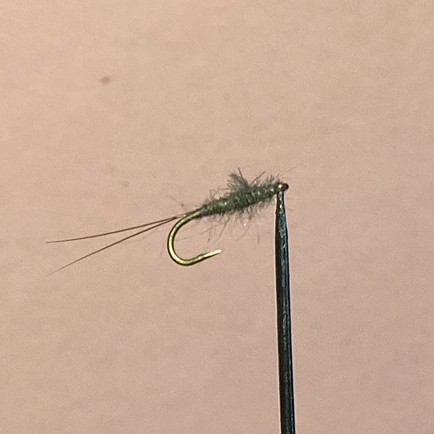
 For this month’s “My Turn” article I’m going to focus on what we as fly anglers can do to make a positive impact on fish and the environment they inhabit. From my own journey in fishing, it wasn’t until I began fly fishing that I started to became increasingly aware of the challenges in improving, sustaining and enhancing native and wild fish populations. During my time with many of you, my fly fishing friends, I’ve been inspired by your awareness and passion for a better future in this sport. And we’ve seen some encouraging signs of hope with coming out of collaboration between many of the conservation organizations we support. The Klamath dam removal project is a shining example. The Carmel River Steelhead Association is a local group dedicated and fighting for their native fish. However, as I write this, I’ve become increasingly concerned that the headwinds facing our fisheries are growing stronger in the face of a number of politically motivated decisions. It’s becoming more urgent that we become stronger voices for fish and their habitats. So, what can we do? Many of us practice conservation already to some degree. Here’s a few suggestions of what we can do on and off the water. Most of my suggestions apply to cold water fish such as trout and salmon, but can be used for other species as well.
For this month’s “My Turn” article I’m going to focus on what we as fly anglers can do to make a positive impact on fish and the environment they inhabit. From my own journey in fishing, it wasn’t until I began fly fishing that I started to became increasingly aware of the challenges in improving, sustaining and enhancing native and wild fish populations. During my time with many of you, my fly fishing friends, I’ve been inspired by your awareness and passion for a better future in this sport. And we’ve seen some encouraging signs of hope with coming out of collaboration between many of the conservation organizations we support. The Klamath dam removal project is a shining example. The Carmel River Steelhead Association is a local group dedicated and fighting for their native fish. However, as I write this, I’ve become increasingly concerned that the headwinds facing our fisheries are growing stronger in the face of a number of politically motivated decisions. It’s becoming more urgent that we become stronger voices for fish and their habitats. So, what can we do? Many of us practice conservation already to some degree. Here’s a few suggestions of what we can do on and off the water. Most of my suggestions apply to cold water fish such as trout and salmon, but can be used for other species as well.
Catch and Release
Lee Wulff said in 1938 that “gamefish are too valuable to be caught only once.” If that was true back then, it certainly is now. There are exceptions like put-and-take fisheries, invasive species and others, depending on your point of view. But the rule of thumb approach is to release fish after catching them, handling them with care to minimize stress and ensure their survival.
Proper Fish Handling
This dovetails with catch and release. Try to land the fish without playing it too long. An exhausted fish is less likely to survive—especially in warmer water. Minimize the time fish are out of the water. I find that in many situations, using a landing net (with the soft plastic material) speeds up the time to release the fish. The net also allows you to keep it under control in the water. Before handling the fish, wet your hands and for larger fish, support its body with both hands. If the fly gets swallowed deep, cut the tippet off and leave the fly in the fish. If you plan on taking a photo, keep the fish under water until the photographer is ready. I’ve seen some great photos of fish in the water, so consider that. If the fish is sluggish and not ready to take off, gently hold it facing upstream until it’s ready to swim off. If in a lake, move the fish slowly to get some water moving through its gills.
Be Aware of Water Temperature
According to many sources, when the water temperature approaches 68 degrees Farenheit most trout become stressed to the point where their survival rate becomes much diminished after being released. In fact a recent study done suggests the 68 degree threshold is too high. For more on this subject, see the link below.
https://news.orvis.com/fly-fishing/are-we-wrong-about-safe-temperatures-for-trout-fishing
Another practice that is being recommended or enforced is the so-called “hoot owl” restrictions where anglers are to not fish after a set time in the day as the water temperature increases. So, bring a thermometer with you and use it to determine when to stop fishing. Look for the current best practices in the area you are fishing. If the water is too warm, look for colder water (like headwaters) or find a fishery that bass or carp inhabit as they can tolerate warmer temperatures.
Follow Regulations
Understand and abide by all local fishing laws including size limits, seasonal restrictions and protected species regulations. For fishing streams on our south central coast during steelhead season, a useful phone number with updates on flow restrictions is 831-649-2886.
Use Barbless Hooks
Practice using barbless hooks to facilitate easier release of fish. In many trout waters they are a requirement. The added benefit is it’s much easier to remove a barbless hook from your body and clothes. I can attest to that!
Minimize Environmental Impact
Avoid littering, access waterways carefully to minimize shoreline damage, and clean up any debris found on the water. If you see litter, pack it out if you can. If you are fishing during a spawn, learn to identify redds so you can avoid trampling them.
Support Conservation Organizations
Join and donate to groups like Cal Trout, Trout Unlimited and Fly Fishers International that actively work to protect fish habitats. Join (encourage your friends too) and support SCFF because we donate $4,000 annually to 15 organizations including Trout Unlimited, Cal Trout, Friends of the Eel River and very local Coastal Watershed Council, Monterey Bay Salmon and Trout Project and Carmel River Steelhead Association. Participate in volunteer efforts to restore degraded stream banks, plant native vegetation, and remove invasive species. Our members have volunteered with Coastal Watershed Council, Monterey Bay Salmon and Trout Project, Carmel River Steelhead Association, Trout Unlimited, Trout In the Classroom. We have also organized our own San Lorenzo River trash cleanup.
Educate Others
Share your knowledge about conservation practices with fellow anglers and the wider community. This includes helping and encouraging younger generations to develop an appreciation for conservation and a passion for fly fishing. It’s extremely gratifying to help pass on some helpful tips to a receptive angler on their journey. Another famous quote by Lee Wulff which is right on the mark: “When we teach a person to fly fish, we just created a conservationist”. Support those seeking careers that help protect the environment. One way SCFF does this is by providing scholarships to local high school students that are pursuing higher education in environmental science related studies.
Advocate for Policy Change
In California, many decisions that impact how our water is managed puts fish survival at risk. Show your support for sound legislation that protects aquatic ecosystems and promotes responsible fishing practices. Call or write your representatives and decision makers to voice your support policies that help protect and improve our fisheries responsibly. As we’ve seen with the Klamath River and now what is about to happen (we hope) with the Eel River, conservation minded individuals and organizations can help make changes when they work together with other stakeholders.
Learn about Local Ecosystems
Understand the unique fish species and environmental conditions in the areas you fish to make informed decisions about your angling practices. Not only will you learn how to practice conservation in you fishery, but it will likely make you a better angler.
I hope you find some of these suggestions helpful in your quest to be a responsible steward of our sport of fly fishing. If any of you have an idea for organizing a group of our members in a conservation activity, contact me or another board member. Thank you SCFF conservationists!
Posted on February 27th, 2025
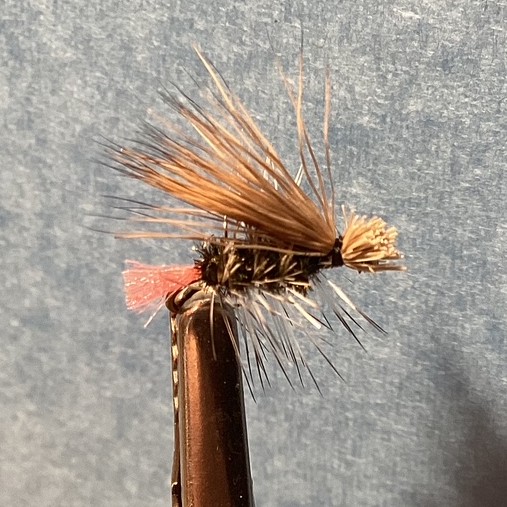
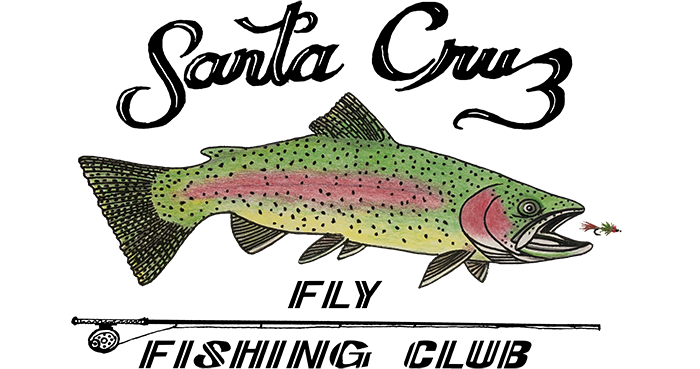
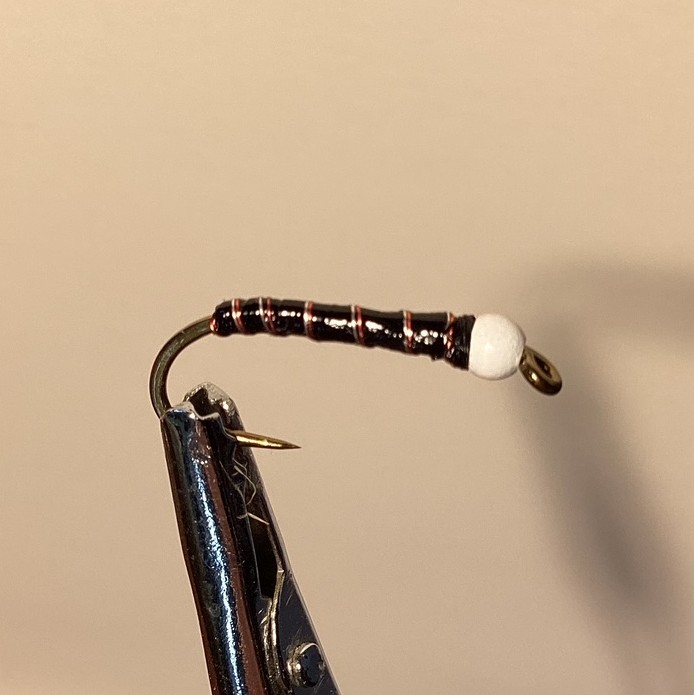
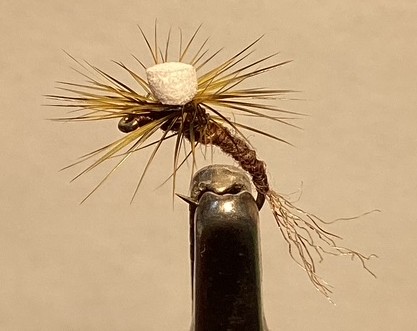
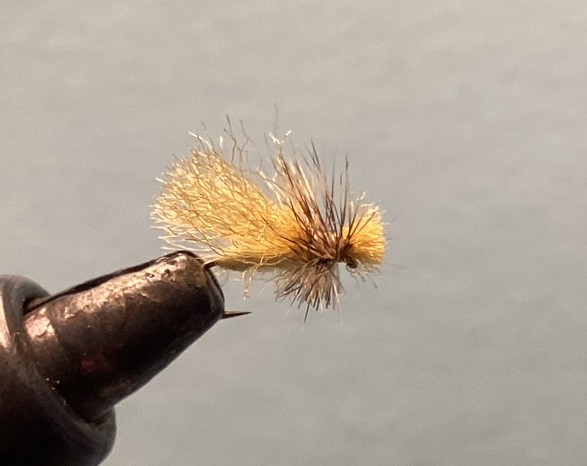

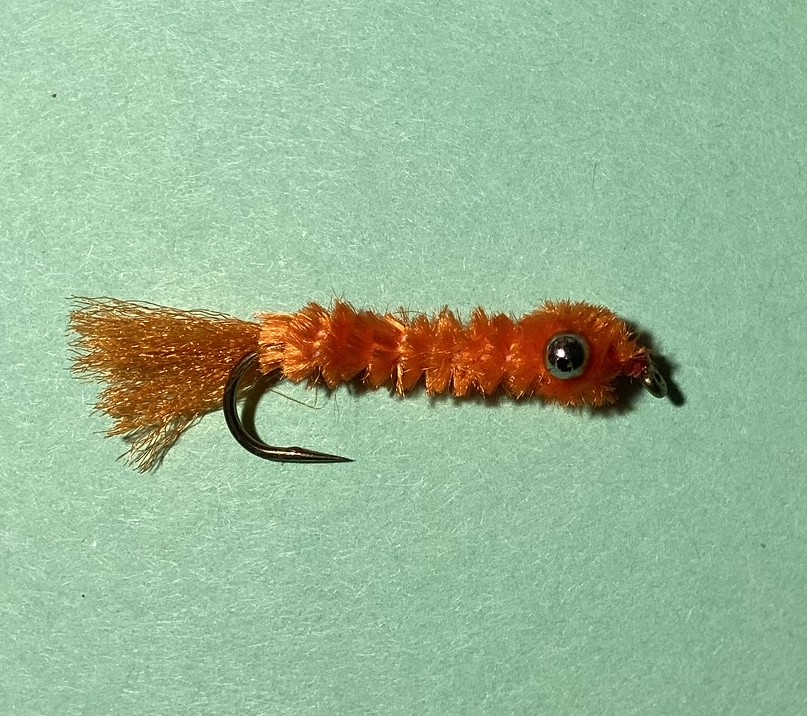








 A primary reason I joined the club was to participate in the Fishouts. We are fortunate to have members here who are and have been willing to share some of their favorite places with those in the club. We have members that have been hosting the same trip for over 15 years and every year they sell out with a waiting list. As a club we have the unique opportunity to utilize the vast experiences and knowledge those in the club share. This goes with out saying that with larger groups we are able negotiate better pricing for most of these trips making them much more affordable and accessible to those who might not be able to make such trips a reality. As an example take a look at Rich Hughlett’s Loreto trip in Mexico coming up in July. This is a smoking deal with almost all expenses paid with your buy in. All one has to do there after is save the date. Here you join group of anglers that have visited the same location for over 20 years and they are more than willing to share their advise and help getting you to their honey hole.
A primary reason I joined the club was to participate in the Fishouts. We are fortunate to have members here who are and have been willing to share some of their favorite places with those in the club. We have members that have been hosting the same trip for over 15 years and every year they sell out with a waiting list. As a club we have the unique opportunity to utilize the vast experiences and knowledge those in the club share. This goes with out saying that with larger groups we are able negotiate better pricing for most of these trips making them much more affordable and accessible to those who might not be able to make such trips a reality. As an example take a look at Rich Hughlett’s Loreto trip in Mexico coming up in July. This is a smoking deal with almost all expenses paid with your buy in. All one has to do there after is save the date. Here you join group of anglers that have visited the same location for over 20 years and they are more than willing to share their advise and help getting you to their honey hole.


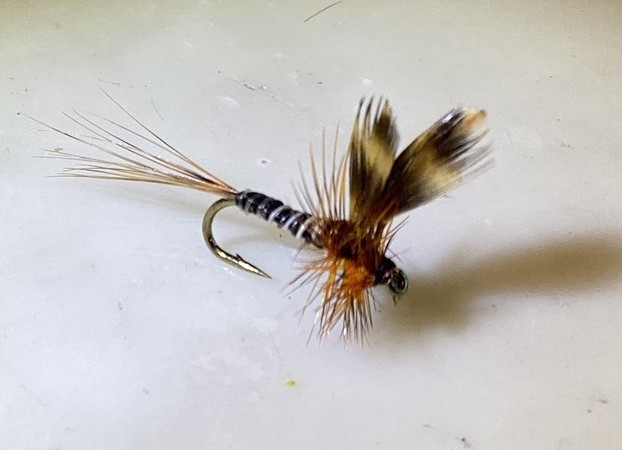




 For this month’s “My Turn” article I’m going to focus on what we as fly anglers can do to make a positive impact on fish and the environment they inhabit. From my own journey in fishing, it wasn’t until I began fly fishing that I started to became increasingly aware of the challenges in improving, sustaining and enhancing native and wild fish populations. During my time with many of you, my fly fishing friends, I’ve been inspired by your awareness and passion for a better future in this sport. And we’ve seen some encouraging signs of hope with coming out of collaboration between many of the conservation organizations we support. The Klamath dam removal project is a shining example. The Carmel River Steelhead Association is a local group dedicated and fighting for their native fish. However, as I write this, I’ve become increasingly concerned that the headwinds facing our fisheries are growing stronger in the face of a number of politically motivated decisions. It’s becoming more urgent that we become stronger voices for fish and their habitats. So, what can we do? Many of us practice conservation already to some degree. Here’s a few suggestions of what we can do on and off the water. Most of my suggestions apply to cold water fish such as trout and salmon, but can be used for other species as well.
For this month’s “My Turn” article I’m going to focus on what we as fly anglers can do to make a positive impact on fish and the environment they inhabit. From my own journey in fishing, it wasn’t until I began fly fishing that I started to became increasingly aware of the challenges in improving, sustaining and enhancing native and wild fish populations. During my time with many of you, my fly fishing friends, I’ve been inspired by your awareness and passion for a better future in this sport. And we’ve seen some encouraging signs of hope with coming out of collaboration between many of the conservation organizations we support. The Klamath dam removal project is a shining example. The Carmel River Steelhead Association is a local group dedicated and fighting for their native fish. However, as I write this, I’ve become increasingly concerned that the headwinds facing our fisheries are growing stronger in the face of a number of politically motivated decisions. It’s becoming more urgent that we become stronger voices for fish and their habitats. So, what can we do? Many of us practice conservation already to some degree. Here’s a few suggestions of what we can do on and off the water. Most of my suggestions apply to cold water fish such as trout and salmon, but can be used for other species as well.

